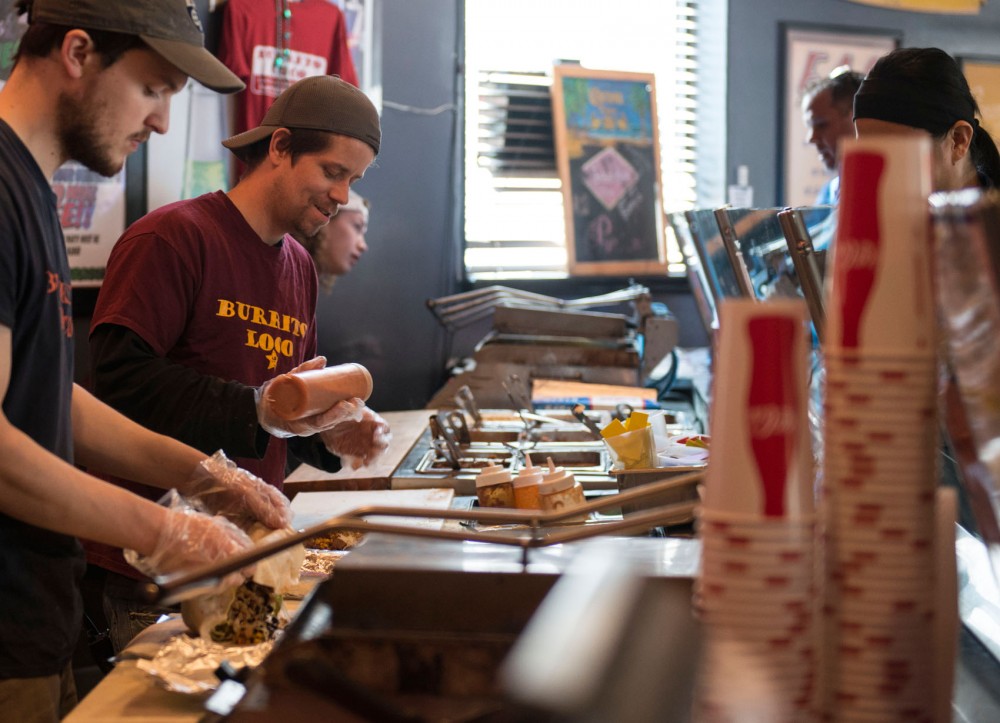Though many minimum wage earners are celebrating an upcoming pay hike, University of Minnesota-area businesses are reluctantly preparing for the change.
Local business owners say they may adjust their hiring practices and increase prices to adapt to the minimum wage hike Gov. Mark Dayton signed into law last week.
They’ll have until August 2016 to iron out the details of how they’ll transition from $6.15 per hour to one of the highest rates in the nation — $9.50. The increase will roll out in phases, with the first pay hike taking effect in August.
Greg Pillsbury, owner of Burrito Loco Bar and Grill and acting president of the Dinkytown Business Association, said he’s concerned about Dinkytown businesses surviving the change. Many will have to adjust their practices in the coming years to make smooth transitions, he said.
“Everyone thinks that bars and restaurants make all this money, and they don’t, especially on campus,” he said. “Most [business owners] don’t have six figures laying around at the end of the year to pay extra in labor.”
Business owners say they may also have to increase pay for workers not making minimum wage to stay competitive and retain employees, which would cost even more.
Stadium Village Commercial Association president Joe Walvoord said this may be the case at the Applebee’s location he manages.
“I wouldn’t be surprised if we have to increase their wages, too, to keep them on staff,” Walvoord said.
Businesses may also have to lower employee hours or cut staff to account for added expenses, he said, but none will face extreme losses.
“It’s already tough to survive, and [the minimum wage increase] will make it a little harder,” he said.
Walvoord said he’s going to wait until the law is fully implemented before he decides to raise other workers’ wages.
He said he plans to increase wages only as required, adding that he hopes to keep costs down for as long as possible.
“Normally when there are increases like this, the increases are smaller, so it’s easier to adapt,” Walvoord said.
Minnesota’s new law mandates that by Aug. 1, large employers must pay their employees at least $8 per hour. By 2015, that rate jumps to $9, with the final $9.50 rate set to take effect in 2016.
After that, the state Legislature could halt increases or change the rate in the case of an economic downturn.
Walvoord said he hopes state legislators consider modifying the minimum wage law to lower wages for employees who receive tips, noting that this would affect many of his business’s employees.
Supply chains and operations sophomore Dylan Diekmann works as a security officer in Minneapolis and makes more than $9.50 per hour. He’s hopeful for a raise because of the minimum wage hike, he said.
Many minimum wage workers, like sophomore Maria Ruddle, who works as a tutor, are excited for the change.
“It’ll be really nice to have a little more money in my pocket every month,” she said. “It’s not going to pay off my loans, but it’s something.”


